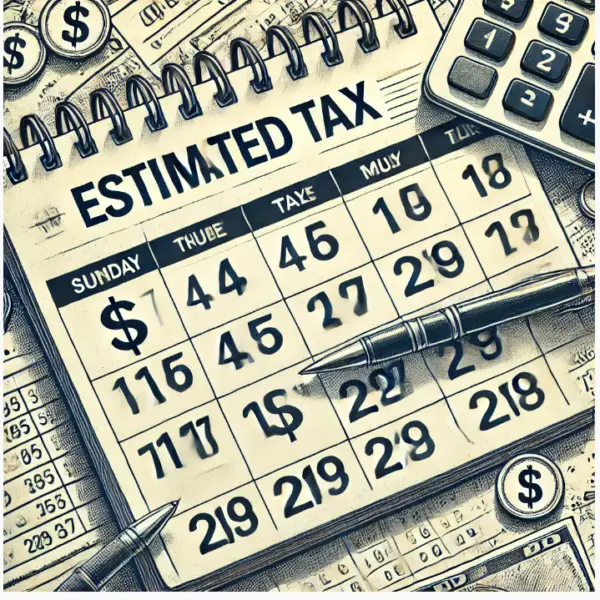Understanding the Five Essential Types of Business Taxes
Navigating the world of business taxes can be daunting, especially for new entrepreneurs. Understanding the various tax obligations is crucial for maintaining compliance and avoiding costly penalties. Here, we’ll break down the five essential types of business taxes you need to know: Income tax, Estimated tax, Self-employment tax, Employment tax, and Sales tax.
1. Income Tax
What It Is: Income tax is the tax you pay on the earnings your business generates. This applies to all types of business structures, including sole proprietorships, partnerships, corporations, and LLCs.
How It Works: Businesses must report their earnings to the IRS and state tax agencies. The amount of income tax owed depends on your business’s net income, which is calculated by subtracting allowable expenses from your gross income.
Key Points to Remember:
- Deductions and Credits: Ensure you’re taking advantage of all available deductions and credits to reduce your taxable income.
- Filing Requirements: Deadlines and requirements can vary depending on your business structure and location. Stay updated on these to avoid penalties.
2. Estimated Tax

What It Is: Estimated taxes are payments made quarterly on income that is not subject to withholding, such as earnings from self-employment, interest, dividends, alimony, or rental income.
How It Works: If you expect to owe at least $1,000 in taxes after subtracting your withholding and refundable credits, you must make estimated tax payments.
Key Points to Remember:
- Quarterly Payments: These payments are typically due in April, June, September, and January.
- Calculation: Use IRS Form 1040-ES to calculate your estimated taxes, taking into account your expected income, deductions, and credits.
3. Self-Employment Tax

What It Is: Self-employment tax covers Social Security and Medicare taxes for individuals who work for themselves. This is akin to the FICA tax withheld from an employee’s wages.
How It Works: The current self-employment tax rate is 15.3%, comprising 12.4% for Social Security and 2.9% for Medicare.
Key Points to Remember:
- Net Earnings: You owe self-employment tax if your net earnings from self-employment were $400 or more.
- Deductions: You can deduct the employer-equivalent portion of your self-employment tax when calculating your adjusted gross income.
4. Employment Tax

What It Is: Employment taxes include several types of taxes that employers must pay and withhold, such as Social Security and Medicare taxes (FICA), federal income tax withholding, and federal unemployment tax (FUTA).
How It Works: Employers must withhold federal income tax, Social Security, and Medicare taxes from employees’ wages and remit them to the IRS. Additionally, employers are responsible for paying the employer’s portion of Social Security and Medicare taxes and FUTA.
Key Points to Remember:
- Payroll Management: Proper payroll management is crucial to ensure accurate withholding and timely deposits.
- Reporting Requirements: File the appropriate forms, such as Form 941 for quarterly federal tax returns and Form W-2 for annual wage and tax statements.
5. Sales Tax

What It Is: Sales tax is a state-level tax imposed on the sale of goods and services. The rate and application of sales tax vary by state.
How It Works: Businesses must collect sales tax from customers at the point of sale and remit it to the state tax agency. The specific goods and services subject to sales tax can differ from state to state.
Key Points to Remember:
- Nexus: Understand your sales tax nexus, which determines whether you have a tax obligation in a particular state.
- Compliance: Stay compliant with state sales tax laws, including registration, collection, and remittance requirements.
Understanding these five types of business taxes is fundamental to ensuring your business operates smoothly and remains compliant with federal and state tax laws. Regularly consult with a tax professional to stay abreast of any changes in tax regulations and to receive tailored advice for your business situation.
By staying informed and proactive about your tax responsibilities, you can avoid penalties and focus on what you do best—growing your business.

